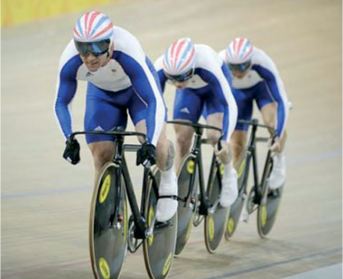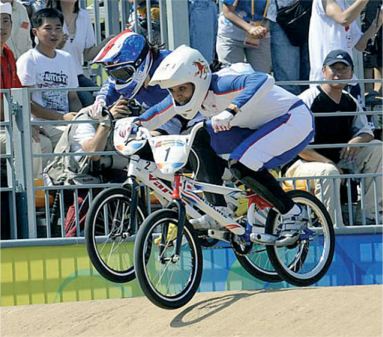The amazing Barack Obama (see post before this) has won his race as convincingly as Usain Bolt won his at the Beijing Olympics. Both share the ability to compete when it counts. Competitiveness is the the theme of the following article that I wrote for the newsletter of GPB Consulting (www.gpbuk.com), presentation advisers to Seb Coe’s successful London 2012 bid team.
As we bask in the reflected glory of the astonishing success of Team GB in Beijing, this is a good time to look at competitiveness in the pitch situation. All of the athletes were highly trained, all were talented but what separated out the medal winners was their ability to peak at the right time, to harness their competitive spirit when it most mattered.
It may seem a far cry to relate this to the mundane world of pitching for business but it is that same competitive ability that separates out winners from losers. I find it helpful to look at the competition in 3 ways: competing externally against your rivals, competing internally for resources and competing for the prospect’s decision.
We know that we are competing head-on with rival companies, typically 3 or 4 of them. I find it useful to look at their capabilities in two ways. Firstly, what are their physical characteristics, strengths and weaknesses, their track record, what are the likely points of emphasis that they will make in any pitch? Then answer the questions, how are you different? How are you better? Ask these questions searchingly since this is where noticeable differentiation lies.

The other way your rivals will be competing with you is more intangible. It will be their attitude to the pitch and how that comes across to the prospect compared to yours. Your plan of attack must ensure there is more energy, more passion and more commitment radiating from you than your competitors. This can be demonstrated in the smallest of things, right down to the answering of a telephone. One slovenly response can undo the committed efforts of the entire team.
The second, often neglected, area of competition is the one for internal resources and support. Often the pitch team will go it alone. This is a mistake. Pitches are the lifeblood of a company and from the outset everyone, even those outside main operational activity, should be enrolled. Let them know what’s going on. Give them practical ways in which they can help. Site visits, desk research, focus groups, anything that helps engender an enthusiasm that will be felt by the prospect.
Internally you also need to make sure that you are not ‘competing’ with, and losing out to, your day job. The ideal, which applied to London 2012 bid team, is to have no other day job. 100% of your energy goes into the pitch. You may not be able to achieve this but ruthless time management can make sure the pitch team’s priority time is the pitch.

Finally, there is the competition for the prospect’s decision. Here you are competing in two ways, for the heart and for the mind. The biggest mistake in most pitches is to focus all the energy, the time, on solving the problem, developing the proposals, writing up the case histories to produce the content that scores rationally, with the mind. We too easily overlook that in the decision process reason leads to conclusion, whilst emotion leads to action.
Competing and winning comes when energy is focussed on building rapport with the client, listening to them, engaging with them as people and pitching an emotional experience.
Returning to the Beijing story, to me the most poignant moment was when the favourite in the BMX race, Shanaze Read, having fallen at the final bend, lost out on the only thing she was interested in which was a gold medal. To her, silver was worthless.
It’s the same with pitches. Coming second is coming nowhere.


